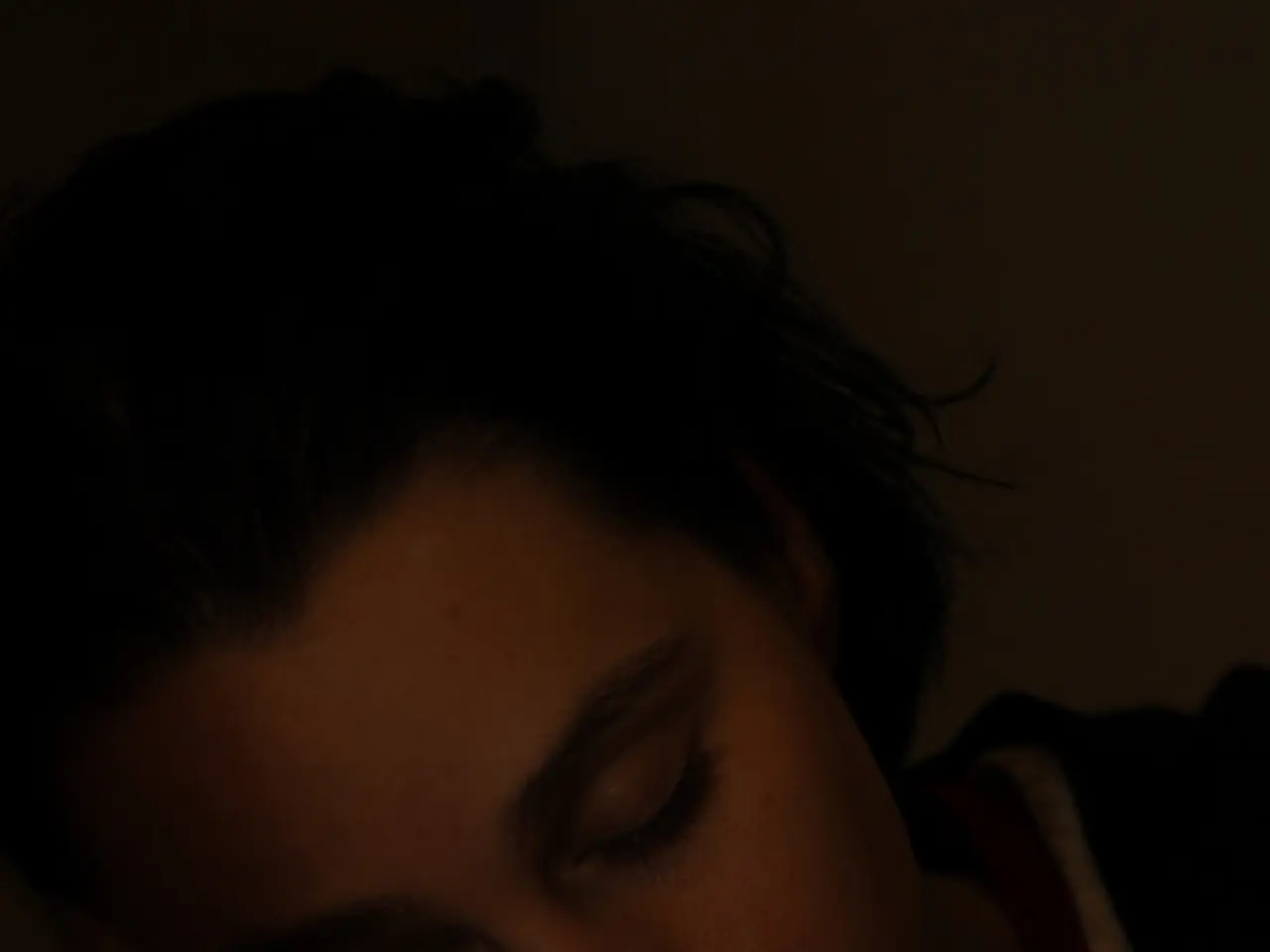Researcher details primary factor causing late-night sleep postponement despite extreme fatigue
A survey by Amerisleep.com reveals that over half of Americans are engaging in 'revenge bedtime procrastination', staying up later despite exhaustion due to lack of personal time during the day. The trend, which involves delaying sleep as a form of self-indulgence, is particularly prevalent among Gen Z and millennials, with 59% admitting they sacrifice sleep to feel more in control of their lives.
The US is the location where this trend is occurring, with social media platforms like TikTok and Instagram being the main culprits, as half of those surveyed admit they're scrolling their phones in bed.
Rosie Osmun, sleep science coach at Amerisleep.com, states that this behavioral shift has real consequences, creating a ripple effect of fatigue, mental health strain, and productivity dips. Osmun emphasizes the importance of treating sleep as a priority, not a reward.
To stop revenge bedtime procrastination and improve sleep habits, the following strategies are key:
- Establish a consistent bedtime routine and schedule. Going to bed and waking up at the same times every day, including weekends, helps regulate your body's internal clock and reduces the impulse to delay sleep.
- Improve sleep hygiene. Avoid caffeine and alcohol late in the day, and stop the use of electronic devices (phones, tablets, computers) at least 30 minutes before bed to reduce stimulation and blue light exposure.
- Create a relaxing bedtime routine. A relaxing bedtime routine that may include reading, meditating, gentle stretching, or other relaxation exercises helps ease stress and make falling asleep easier.
- Make your bedroom environment inviting. Keep it dark, quiet, cool, and comfortable with proper bedding. A restful environment makes sleep more appealing and can counteract the desire to stay up for leisure activities.
- Recognize that revenge bedtime procrastination often stems from a feeling of low daytime control or a need for solitude and personal time. Instead of delaying sleep for “revenge” personal time, consider scheduling small breaks or solitude earlier in the day.
- If sleep problems persist or cause significant daytime sleepiness, consult a healthcare professional to rule out sleep disorders and get personalized guidance.
Limiting screen time an hour before bed and using blue light blockers or night mode can help reduce the habit of revenge bedtime procrastination. Reclaiming 'me time' earlier in the evening, such as during a commute or right after dinner, can help reduce the need for late-night activities. Making mornings feel meaningful with a quiet ritual, walk, or coffee before work can make going to sleep more appealing.
By implementing these changes consistently over time, you can break the cycle of intentionally delaying sleep and improve overall sleep quality, reducing fatigue and promoting better daytime functioning. Tracking sleep patterns can help identify how often bedtime is being delayed.
The trend of 'revenge bedtime procrastination' is not only affecting mental health but also impacting productivity and overall health-and-wellness in the US. To combat this issue, news articles on health-and-wellness websites could discuss strategies like establishing a consistent bedtime routine, improving sleep hygiene, and limiting screen time before bed. Such articles might also suggest recognizing the reasons behind 'revenge bedtime procrastination' and finding alternatives for solitude and personal time during the day instead of delaying sleep. By doing so, individuals could potentially improve their sleep quality, leading to better mental health, increased productivity, and enhanced daytime functioning.




